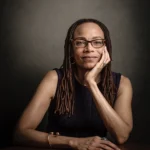Reproductive Justice – Past, Possibilities and Policies
About the Episode
In the wake of the Supreme Court reversing reproductive rights access to half of the country's population, revisit our Unerased episode on how Black women can lead better and healthier lives.

“We came here as human chattel, and our fertility was exploited for profit by others, and then generations later, still, our fertility is derided and brutalized.”

“The main things that that we integrate when we’re talking about reproductive justice is that our bodies are our own bodies–totally our own.”

“Each person has their own conditions and context of their lives and they have a right to develop their reproductive choice… No one else has the right to come in as a vigilante and say, no, here’s what you’re supposed to do.”

“Killing the black body was my attempt to explain the history of black women’s childbearing and ways in which the US government and private actors tried to constrain it from slavery until the present time.”
Acknowledgement
Our podcasts are possible with generous support from the following donors:
- “Anonymous” Donors
- Craig Newmark Philanthropies
- Groundswell Fund
- The Park Foundation
- TD Charitable Foundation
